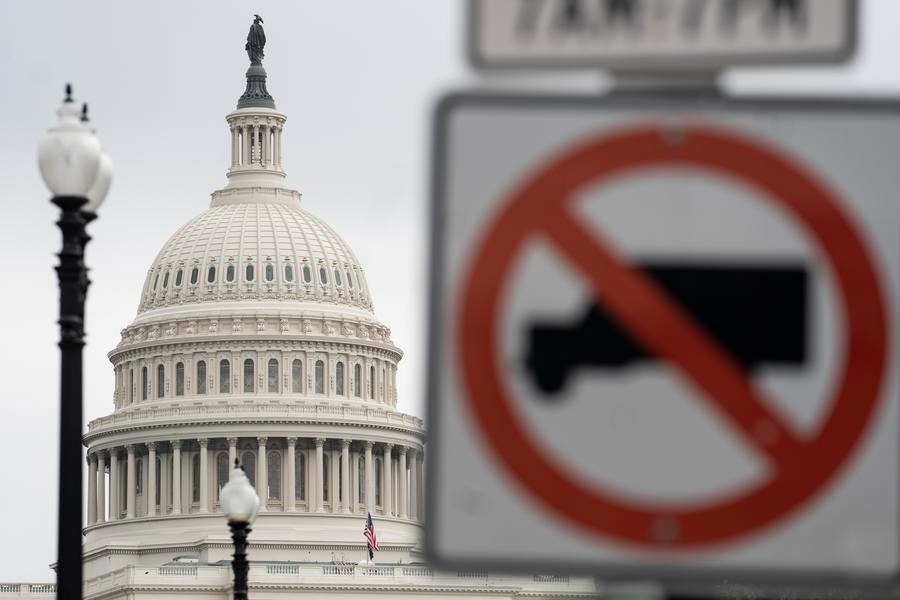Tencent's inclusion on Pentagon list puzzling

Tencent Holdings Ltd, parent company of China's popular WeChat messaging app, is trying to figure out how it ended up on a Pentagon list as being a "Chinese military" company.
Brendan Ahern, the chief investment officer of KraneShares, a China-focused provider of exchange-traded funds (ETFs), explained on X.com how Tencent is basically a video game and social media company.
"The vast majority of Tencent's … revenue comes from video games … social media i.e. advertising on WeChat and mobile payments. The largest shareholder is a South African newspaper company."
Ahern wrote that Tencent "can dispute the claim and sue in court if necessary. not w/out precedent for a company to be put on this list, sue and win".
The Pentagon said on Monday it had added Tencent and major EV-battery maker CATL to a long list of Chinese firms it has deemed military companies.
"We are not a military company or supplier. Unlike sanctions or export controls, this listing has no impact on our business," Tencent said in a statement, adding that its inclusion on the list was "clearly a mistake".
"We will nonetheless work with the Department of Defense to address any misunderstanding," the Shenzhen based company said.
Liu Pengyu, a spokesperson for the Chinese embassy in Washington, said in a statement: "We firmly oppose the US' generalization of the concept of national security, the establishment of discriminatory lists of various names, the unreasonable suppression of Chinese companies, and the disruption of normal Sino-US economic and trade cooperation.
"The US' practices violate the market competition principles and international economic and trade rules that it has always advocated, undermine the confidence of foreign companies in investing and operating in the United States, and damage the interests of American companies and investors, which will eventually backfire on itself."
US-traded shares of Tencent fell $4.05 in over-the-counter trading on Monday, closing at $49.10, down 7.6 percent.
Despite the downturn, some on Wall Street remain bullish on Tencent shares.
Citigroup analyst Alicia Yap reiterated a "buy" rating and "top pick status" on Tencent, according to Business Insider. She wrote in a research report that Tencent's growth outlook and fundamentals are sound. She sees the selloff as an "enhanced buying opportunity" and has a HK$573 price target on the share.
The analyst consensus rating on Wall Street is that Tencent is a "strong buy" with an average price target of $69.13 — $20 above Monday's closing price — the website reported.
While the designation of the companies on the list does not involve immediate bans, it could add pressure on the US Treasury Department to sanction the companies.
Brian Tycangco, an editor and analyst at Stansberry Research who follows China, Asia, tech, energy and commodities posted on X: "It's turning out that if you're an innovative Chinese business making money, you're likely to be considered a threat to US national security. Wild."
"Extreme Bagholder", an investor, wrote on X: "Just as I was diving deep into Tencent and considering a position, it gets added to the US Military blacklist."
TechCrunch, a prominent news website based in San Francisco, reported how Tencent also invests in several American companies.
"While the Chinese internet giant Tencent is best-known for its super-app WeChat, it's also a major investor in US tech companies and startups. Some of its most notable and still active investments include Reddit, Snap, and Fortnite creator Epic Games," the website reported.
The list of Chinese military companies, mandated under US law as the "Section 1260H list" and updated annually, designated 134 companies, according to a notice posted to the Federal Register on Monday.
The Pentagon list also included chipmaker Changxin Memory Technologies, Quectel Wireless and drone maker Autel Robotics.
Two previously listed companies, drone maker DJI and Lidar-maker Hesai Technologies, both sued the Pentagon last year over their previous designations, but remain on the updated list.
The Pentagon also removed six companies it said no longer met the requirements for the designation, including AI firm Beijing Megvii Technology, China Railway Construction Corp Ltd, China State Construction Group Co and China Telecommunications Corp.
CATL also called the designation a mistake, saying it "is not engaged in any military related activities".
Other companies added include MGI Tech, which makes genomic sequencing instruments, and Origincell Technology, which lawmakers have alleged operates a cell bank network and bio-storage technologies.
A Quectel spokesperson said the company "does not work with the military in any country and will ask the Pentagon to reconsider its designation, which clearly has been made in error".
US lawmakers had pushed the Pentagon throughout 2024 to add some of the companies, including CATL, to the list.
Ford Motor is building a battery plant in Michigan and plans to license CATL technology to produce low-cost lithium-ion batteries at the facility. CATL is the world's largest electric-vehicle battery maker, with its products also used by other major automakers.
Yifan Xu in Washington and agencies contributed to this story.

































